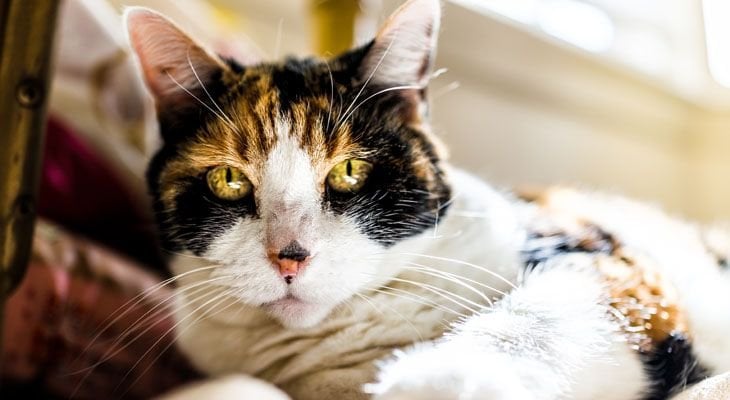
Thanks to advancements in veterinary care, today’s cats can live well into their teen years. It is not uncommon for cats to live to be 18 or even older. However, in order for cats to live a long full life, they need proactive veterinary care to stay healthy.
As cats age, they are at greater risk for chronic diseases and health complications. However, cats are also masters at hiding illness. Semi-annual veterinary appointments are the best way to monitor a cat’s well being. For a senior cat, six months can be the equivalent of two years – a number of health changes can happen during this period.
During a wellness exam, a veterinarian will check a cat’s weight and body condition, skin and coat quality, eyes, ears, thyroid, heart, lungs, joints, mouth and abdomen. A veterinarian may also conduct diagnostic blood work and parasite screenings. While physical changes are easily noticed (e.g., weight loss or change in coat quality), internal changes are more difficult to detect. Diagnostic tests provide an important snapshot of a cat’s internal health and can detect problems such as hyperthyroidism and kidney disease.
Feline hyperthyroidism and kidney problems are the most common health conditions affecting older cats. Hyperthyroidism affects many organs in the body, including the heart. Hyperthyroidism can lead to secondary heart disease as well as hypertension (high blood pressure). Kidney disease can also cause hypertension. Your veterinarian can check for this during your cat's exam. Blood tests during a semi-annual wellness screening are the best way to detect hyperthyroidism and kidney problems. With early diagnosis, medical treatments can be very successful in managing these disease. These are examples of why proactive veterinary care is so important for senior cats.
Wellness exams are also an opportunity to evaluate a cat’s dietary needs. As cats age, their nutritional needs change. For example, cats with kidney problems should have a diet low in protein and phosphorus. Less active cats may need to be fed less in order to prevent weight gain and obesity. Other cats may become disinterested in food, resulting in weight loss. Cats that lose their sense of taste and smell may also lose interest in eating. Unfortunately, gradual weight loss can also go unnoticed, especially for longhaired cats. This is why nutrition evaluations and regular weigh-ins are so important.
Just like humans, cats will have different wellness needs as they age. Some cats may need a special diet while other cats may need medication to manage a chronic disease. Your veterinarian will make specific recommendations based on your cat’s wellness needs.
Sources:
American Association of Feline Practitioners. Friends for Life, Caring for your Older Cat.
Cornell University, College of Veterinary Medicine. Hyperthyroidism in Cats.
